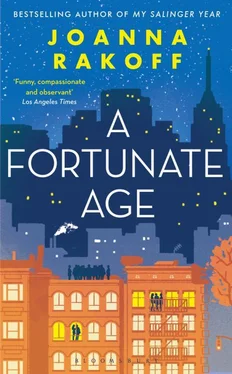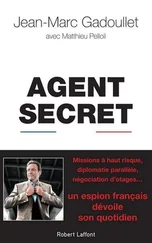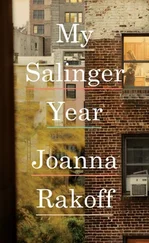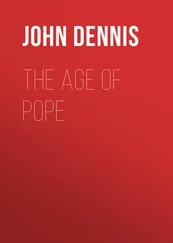These words, somehow, caused a sob to lodge in Sadie’s throat. Two weeks . She turned to Jack, to see if he had registered Caitlin’s meaning, if her words had frightened him, but he was engrossed in the kittens, his blond head level with theirs. He was good with animals, she thought proudly. “You have cats, right, Jack,” she said. She turned to Meera and Caitlin. “We have two. When we adopted them they were as small as these guys. Now they’re huge. Fat.” In Rose’s view, the cats were “morbidly obese,” but Sadie couldn’t worry too much about this. They were sweet cats, friendly and good with people, more like dogs, really. They flopped down on the floor and begged to be petted. And they never scratched. I’m good , she thought, the unexpected swell of emotion still lodged somewhere in her chest. I’m a good person. I am , she thought. I am . She had made them gentle, all three of them, the cats and Jack. She had done—was doing—something.
“Cat,” said Jack, attempting to pet all the kittens at once. “Cat.”
“One at a time, sweetie.” Sadie turned to Caitlin. “What are their names?”
“Actually, we haven’t decided yet. So he can just call them ‘cat’ if he wants to.”
“ Cat ,” said Jack, laughing. “Cat cat.”
“Mama, look.” He turned to face her, but the white toy obscured his face; it was not a toy, of course, but a bottle, filled with something thick and white.
“Is that?” she asked, pointing.
“I hope it’s okay,” said Meera. Her accent was British, precise, soothing. “It’s one percent milk. Organic. He’s not allergic? He seemed to—” She patted herself on the chest. “He was—”
Sadie nodded. “I know.”
“But I thought that couldn’t be right, because American children, I know, are off the breast before a year, usually. But he was just kind of grabbing —” She pressed her lips into a polite little smile.
“I know, I know,” said Sadie again. “It’s fine, really. He needs to drink milk. He’s not wanted to. It’s good.”
“Oh, good,” said Meera. “He actually didn’t know what to do with it when I first gave it to him. But I think he likes it.” Jack nodded, the bottle still in his mouth. “I know he’s too old for a bottle, but we don’t have any sippy cups yet.”
“It’s fine. Really, it’s fine,” Sadie told her. “He’d never take it from me. A bottle. Or milk, either. I actually lied to the doctor at his last checkup, said he drank it. So it’s good, really. He’s growing up.” She knelt beside him and gave him a kiss on the cheek—and he threw his free hand around her neck. “Good,” he said. “Good.”
“Yes, it’s good, right?” she asked him.
“Yes,” he said. “Good.”
And so it was.
Sadie stopped visiting the new playground after that day. Instead, she took Jack to the play area in her own building’s courtyard, which was older and smaller, but closer and, she discovered, friendlier. As such, it was more than a year before she saw Caitlin again. By that time Lil was dead and the world had, slowly and irrevocably, become a darker place than any of them could have imagined.
Each day some fresh horror arose: The train bombings in Madrid. The endless car bombings and suicide bombings in Iraq and Pakistan and Israel and Afghanistan, with their roster of civilian victims (children; always children). The Vietnam-style rapes and massacres of Iraqi families—and the accompanying photos of the sweet-faced Virginia boys who’d perpetrated them. The kidnappings, all over the Middle East and North Africa, of journalists and contractors and translators. The beheadings—videotaped, aired on television—in Iraq. Everywhere, everything was wrong, wrong, wrong.
And then the prison scandals broke, in the spring, as Sadie waddled uneasily around Grand Street, waiting for her water to break, Jack impatient with her slow gait. In the hospital—her wide window overlooking the Hudson, Mina asleep in a clear bassinet beside the bed—she flipped open The New Yorker and found a photo that made her breath stop: a man, barely recognizable as such, balanced precariously on a brown carton, his head covered with a black, conelike hood, his body draped in a black blanket, his arms spread wide, wires sprouting from his fingers. “Oh my God,” she said aloud, and slammed the magazine shut, her heart racing. But she read the article—after a bracing cup of coffee—and all those that followed, forcing herself (why? why?) not to skip over the details of the acts of torture (“sodomizing a detainee with a chemical light”) or the leering, abhorrent faces of the officers, their thumbs jubilantly raised, like frat boys after a beer run.
Back home, in their still-unrenovated apartment, lead paint chipping off the cabinets, ancient stove chugging ever on, Mina sleeping with her and Ed, Jack waking at five and crawling in with them, too, Sadie found herself unable to sleep past dawn. Each day she rose and shuffled wearily to the kitchen, put on the water for her coffee, and snapped on the news. She needed, now, to know, just as, in those first years of Jack’s life, she’d needed not to know, left the paper to yellow on the coffee table. “The world is a dark, horrifying place,” Ed told her. “You’re totally right. But you’ve got to try to filter a little. Or you’re going to go crazy.”
“I know,” she said. She had been thinking the same thing herself. “I just feel like it’s only a matter of time before something else happens.” Something big, something bad, something close . “And I just feel like I have to pay attention.”
Come August, the Republican convention arrived—and the security-alert level for the city was raised to “orange.” Ed’s offices, in Chelsea, were dangerously close to the Garden, where the convention was being held. “Stay home,” she said, the first day of the convention, trying not to let her tone belie the extent to which she truly needed him to heed her.
“I can’t,” he said. “I’m swamped.” He was once again going to Toronto—with a little DV thing he’d produced, sort of postapocalyptic—and frantically making final cuts to the Bosnia film in order to make the Sundance deadline. There were a million other projects, too, so many she could no longer keep track.
“I know,” she said, wrapping her arms around him. He was no longer the skinny guy she’d met—strange to think—six years ago at Lil’s wedding. She’d thought him so old then—thirty. Younger than she was now. After they’d moved in together, she’d discovered that he primarily subsisted on breakfast cereal. “I’m sorry. I’m crazy.”
And perhaps she was: by lunchtime, the pundits had issued an all-clear. October, they said, was the time to worry about, the month when everything Sadie feared might start up: suicide bombings (why hadn’t they happened here yet, she often wondered), train and bus and car bombings, September eleventh–style attacks, the scope of which would be impossible to envision or foresee or stop .
“Why October?” she asked, the next day, as she and Ed sat on the couch, trying to wake up, Mina nursing, Jack dropping his blocks, one by one, into Sadie’s chipped Dutch oven. From the kitchen, their old radio, one of Aunt Minnie’s relics, droned. “It seems so random.”
“The elections,” said Ed. “It’s right before the elections.”
“But we’re not going to cancel the elections. And why would they care who wins? We’re all imperialist scum to them, right?”
“Yep,” said Ed, scanning the Metro section. “Godless pornographers.”
Читать дальше












